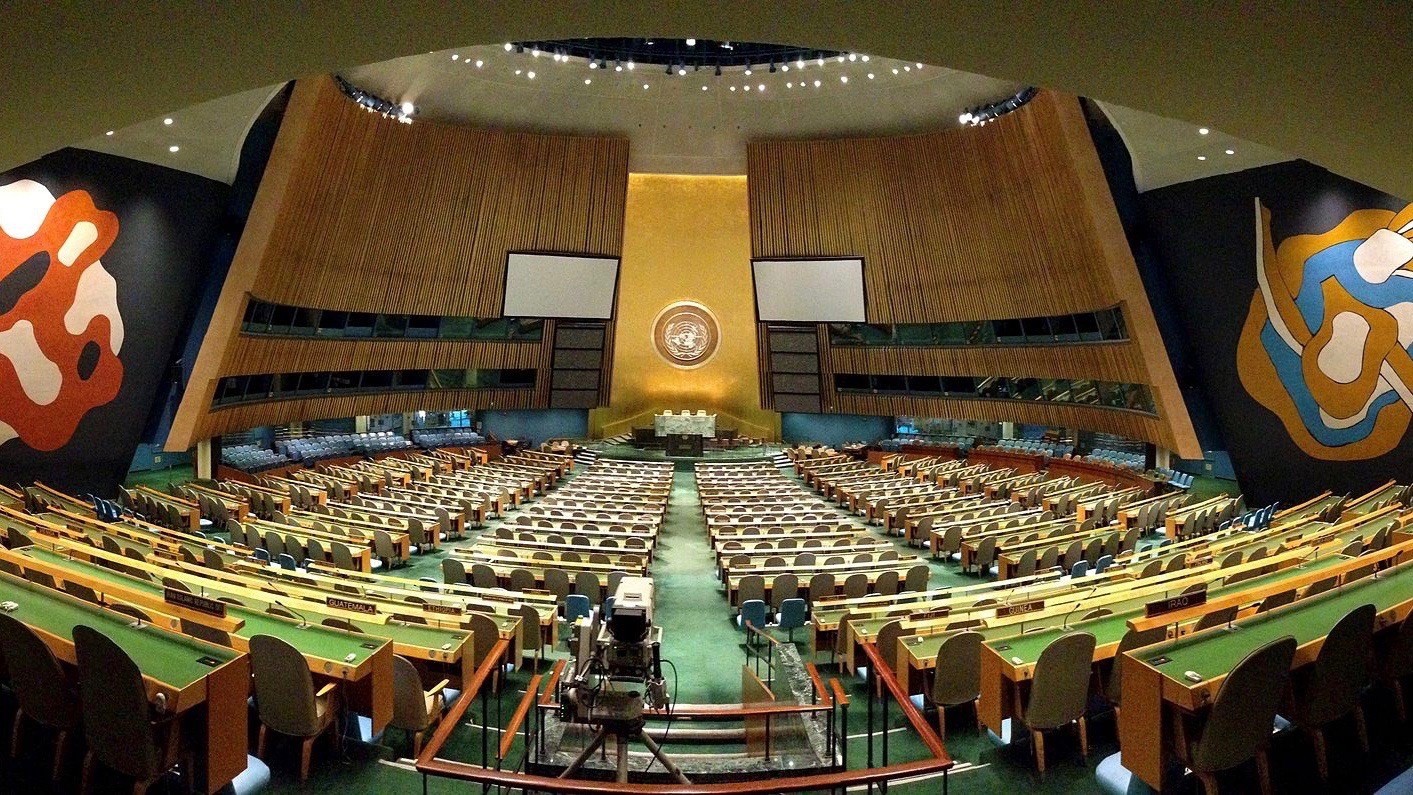Italy, Austria, Germany oppose resolution to combat Nazi glorification
With the increasing presence of neo-Nazism in Europe, some states still refuse to combat Nazi glorification, according to the Russian MoD.
-

The UN General Assembly
For the first time in history, Italy, Austria, and Germany voted against Russia's resolution on countering Nazi glorification, according to Grigory Lukyantsev, an authorized representative of the Russian Foreign Ministry for human rights, democracy, and the rule of law.
Voting was conducted during a meeting of the UN General Assembly's Third Committee. A majority of votes were cast in favor of the resolution.
“In my memory, this is the first case in history. <...> Even when in 2011 there was a split in the ranks of the EU and part of the EU member states voted against, and part abstained, the representatives of Germany, Italy, and Austria swore to us that they would never, for reasons of principle, be able to vote against a document that condemns the glorification of Nazism," Lukyantsev told reporters, as reported by RIA Novosti.
Voting on the resolution to combat glorifying Nazism usually takes place annually. In 2022, 106 countries supported it. However, in recent years, the United States and Ukraine have voted against it.
Read next: Stanford is supporting neo-Nazi ideology by welcoming Azov: Russia
This year, Great Britain, Hungary, Georgia, Germany, Italy, France, Japan, and the Baltic countries refused to support it. They believe that the Russian Federation is exploiting the topic of combating neo-Nazism for its own purposes against the background of the military operation in Ukraine.
This comes after the UN General Assembly's Third Committee passed a Russian draft resolution on Friday aimed at combating the glorification of Nazism, gaining a 105-52 vote with 15 abstentions. The UNGA adopts this resolution on an annual basis; once it is approved by the committee, it must be voted on in the GA in December.
The document, titled "Combating the glorification of Nazism, neo-Nazism and other practices that contribute to the escalation of modern forms of racism, racial discrimination, xenophobia, and related intolerance," recommends that countries take appropriate concrete measures, "including in the field of legislation and education, in accordance with their international obligations in the field of human rights, in order to prevent the revision of the history and results of the Second World War and the denial of crimes against humanity and war crimes committed during the Second World War."
The resolution also calls on member states "to take active measures to ensure that education systems develop the necessary content to provide accurate accounts of history, as well as promote tolerance and other international human rights principles."
Read next: Russian embassy denounces US for condoning neo-Nazi crimes in Ukraine

 3 Min Read
3 Min Read










